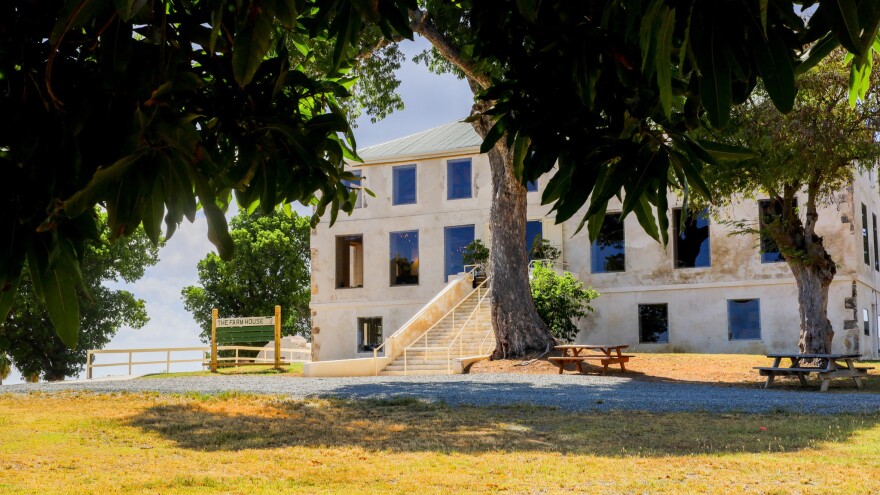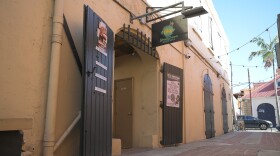In May, Prosperity Farm Distillery hosted “The Spirit of Craft: A Celebration of Craft Spirits.” We welcomed nineteen Black-owned craft distillers and spirits brands to St. Croix to highlight social entrepreneurship, value-added agriculture, craft distilling, employee-ownership models, and community uplift. A senior executive from Pronghorn, the largest investor in Black and minority-owned spirits brands, also attended.
During a dinner with local cultural leaders, food advocates, elected officials, and invited guests, Governor Bryan opened his remarks with a familiar phrase: “The VI is open for business.” At Prosperity Farm Distillery, however, our experience has shown that reality does not always match that intention. We remain hopeful, but there are areas where the process needs to work better. More on that shortly.
If you missed the event, it was a full day of local music ending with an unforgettable performance by VI jazz legend Dion Parson. Instead of a traditional admission fee, guests brought canned food. The community donated enough to fill a truck for My Brother’s Table, helping support food-insecure and unhoused neighbors in Frederiksted for months. Giving back is central to who we are.
We also recognize the complicated history of sugar cane. Sugar cane was once the backbone of one of the most exploitative and traumatic economies in the world. Its legacy includes deep generational harm. At the same time, it created vast wealth across the Caribbean and beyond—wealth that did not flow to enslaved people or their descendants.
Many people ask why we chose sugar cane and spirits. One major reason is that thirty percent of the Virgin Islands economy comes from rum cover-over taxes. Most of that revenue is generated by two multinational corporations: Diageo (Captain Morgan), based in the United Kingdom, and Suntory/Jim Beam (Cruzan Rum), based in Japan. Few residents realize that Virgin Islands taxpayers spend between $40,000,000 and $70,000,000 dollars every year buying molasses from Honduras, Nicaragua, and the Dominican Republic for these companies.
This raised an important question for entrepreneur Bob Apfel when he chose to invest in Prosperity Farm Distillery: Why are we sending tens of millions overseas when St. Croix was once one of the most productive agricultural islands in the Caribbean? Why not reinvest in our own land, farms, people, and the ability to process our natural resources?
With modern techniques, St. Croix can be productive again. We have planted five acres of ginger and hibiscus, along with bananas and other fruits. As we grow, we plan to add vegetables such as yams, cassava, lettuces, tomatoes, and additional crops.
For more than forty years, the land where Prosperity Farm Distillery now stands sat abandoned—covered in overgrowth and crumbling ruins. Today, when people see our transformation photos, they see hope and new life on the west side of St. Croix. Many still remember Plantation Nightclub with fond memories, the last business operating where the restored Farmhouse and Courtyard are today.
There has also been public conversation about what is legal and permissible at Prosperity Farm Distillery. We are zoned Agricultural-1 (A1) and hold a Commercial Farming License. Both the zoning law and the license allow a broad range of by-right permitted activities and uses. Some have asked if A1 zoning permits a distillery. The answer is yes. The U.S. Virgin Islands Code Title 29, Chapter 3, §228 permits agricultural processing on A1 property, which includes distillation. It expressly disallows Rum distillation (and the slaughter of animals for commercial sale), but distillation is expressly allowed as a form of agricultural processing.
We do not currently make rum, but we would like to. This restriction is difficult to understand when so much of the Virgin Islands economy depends on rum production.
USVI Bill No. 29-0104 (2011) “The Farmers, Fishermen, and Consumers Assistance Act” further defines agriculture to include the processing and manufacture of food products and by products, as well as agritourism activities such as farm tours, classes, field days, food events, and farm stays. This is exactly what we do. Pressing cane into juice, fermenting it, and distilling it on-site are all legally recognized forms of food processing under USDA standards, federal law, VI Department of Agriculture guidelines, and VI zoning and licensing rules.
These permitted uses and activities are why other local farms—Ridge to Reef, Sejah Farms, and Art Farm—can legally host farm dinners and events under the same commercial farming licensing and zoning allowances. Another part of a Commercial Farming License and 2011 law noted above outlines the cost of a Commercial Farming License as $1, and “exempts from payment to the Government of the Virgin Islands of all other license fees directly related to and arising from his agriculture operations.
Farmers are absolutely allowed by law and by right to sell their products on-site without additional licenses, and provide tours, and host events and farm stays. The Farmhouse Tasting room sells the products we make on the property.
Because customers regularly ask about food service, beer, wine, and other beverages, we contacted the Department of Licensing and Consumer Affairs (DLCA) to clarify what additional licenses we may need. We have received different answers from different officials, so we reached out to leadership for clear guidance. Based on the recommendations we were given; we applied for two additional licenses. As far as we know, neither application has been denied, and we are withdrawing those applications until we get the clear guidance we need to continue to operate legally.
We agree with Governor Bryan that the Virgin Islands should be open for business. Our residents deserve good jobs, beautiful gathering spaces, high-quality local products, reliable roads and electricity, strong healthcare and education systems, and a government process that is transparent and consistent. We believe this is achievable. We look forward to serving our community for years to come, and welcome everyone to visit Prosperity Farm Distillery.
This is an opinion piece from the author, not a news report. It does not reflect the views of the station.















